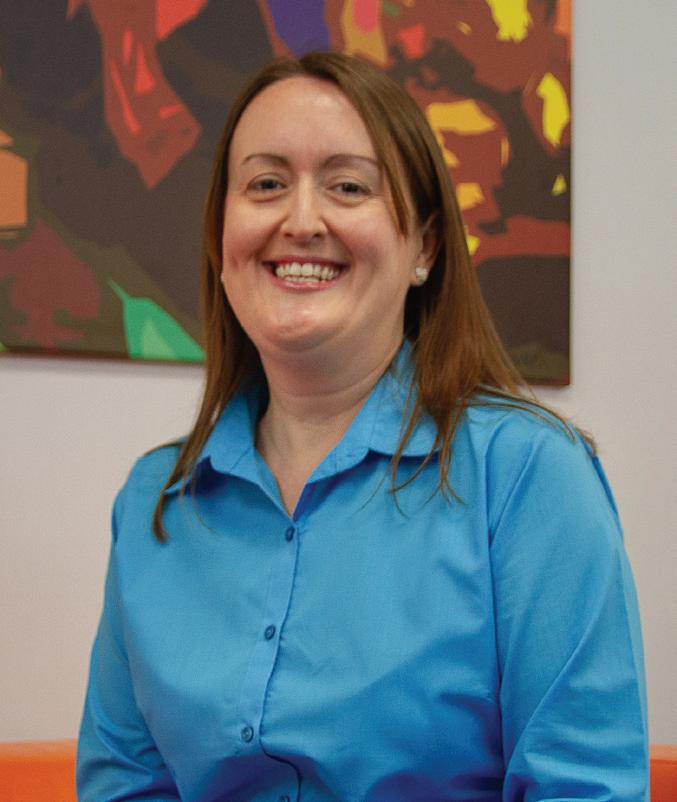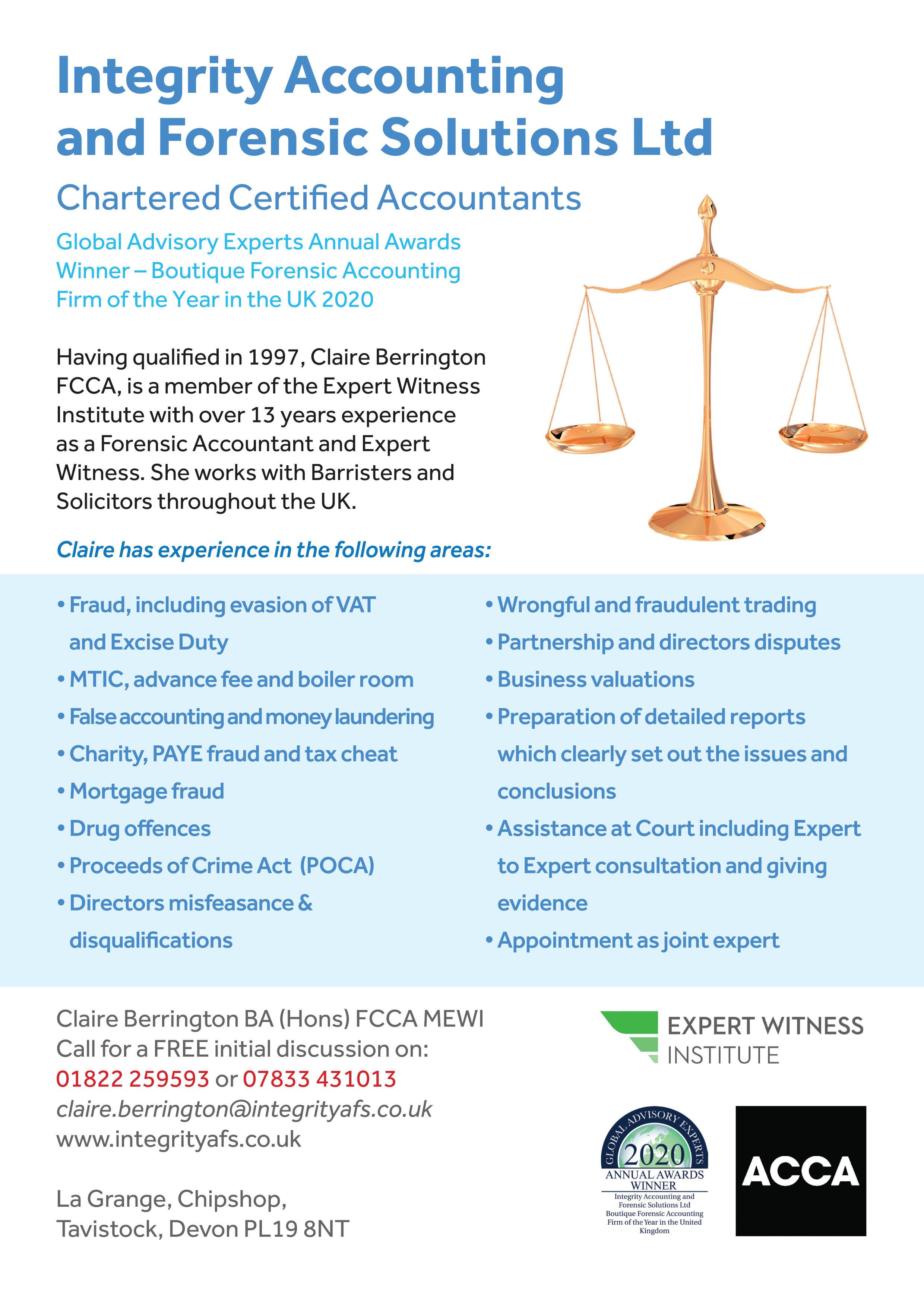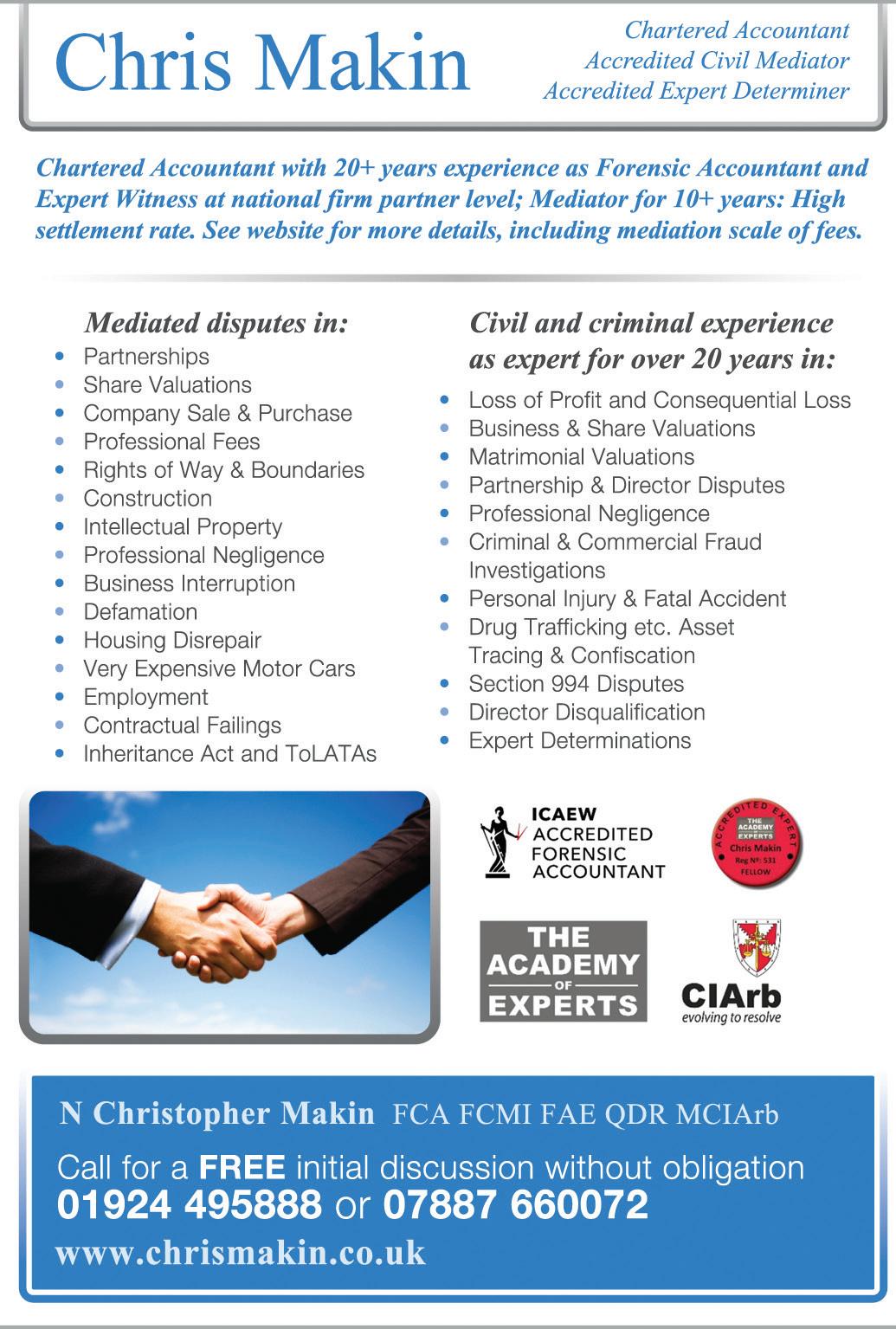
10 minute read
Call handling for law firm clients - a personal view
The Oberoi Business Hub team have developed niche expertise in providing call handling services for law firms. Training, experience and their passion for great customer service is key to the consistent high quality service.
Here, team member Laura Cotton talks about her role: handling incoming calls for several law firms to improve efficiency and customer service standards for both them and their clients.
What’s your career background?
I have worked since I was 18 and have had various roles in travel and banking. All of my job roles have involved giving outstanding customer service which I pride myself on and my previous experience holds me in good stead for my current law firm clients.
How long have you worked with Oberoi Business Hub?
I started working for Oberoi Business Hub in August 2020 after being made redundant from my previous company who needed to make cutbacks due to the pandemic. I was drawn to the job because every day is different and it was clear from day one that the whole team was committed to providing excellent customer service.
How do you prepare when a new client comes on board?
When a new client comes on board with us, our Account Manager liaises with the client to determine how they want us to answer and manage their calls. Whether that be emailing or texting the message direct to the client or live transferring the call to the appropriate staff member. Our Account Manager also sets up our IT systems for seamless service delivery. Time is allocated to train each team member who is responsible for handling the client’s calls.
What information do you need to do your job?
We are effectively an extension to the client’s team so we accrue an in-depth understanding of each and every law firm client, including their structure, senior partners, number of fee earners and the areas of law that they specialise in.
Having done this research, the most important information is how the client wants their calls to be handled. This determines whether we transfer the calls to individuals, go through to fee earners directly or their secretaries first or whether they prefer to be emailed with the caller’s contact details and details of their enquiry. We ensure our systems are always up to date with individual’s names, roles, working days and times as well as updates about holidays or when they are unavailable for any reason which is important to provide an efficient service.
How do you handle calls?
We provide a tailored service to each law firm so the process depends on each client’s preferred practice. Regardless of the preferred process, it is obviously vital that we create a good first impression and a professional service from the outset. My approach is always to be as informative and helpful as possible and to create a positive experience for the caller. Having greeted the caller, I determine who they need to speak with and the reason for their call - making notes to pass on to the relevant staff member. If the initial contact is unavailable, I refer to the client instructions and try a second or third staff member at the firm. Alternatively, I email the details through, advising the caller that I have done this and to expect a call back. The benefit of this is that our clients can be prepared with the relevant files to hand before calling back. If it is a cold sales call to, say the marketing department, we often have specific instructions to take more detailed information so they can decide whether they want to return the call – saving them time by filtering the unwanted calls.
What reports/logging information do you provide to your law firm clients?
At the end of every day, we provide a detailed call log which is an overview of call details, the nature of the enquiry, caller contact details, who from our team answered the call and the time of the call. By scrutinising the nature of the calls that are coming through on a daily basis, our clients can gain a comprehensive overview of their business which they would not necessarily achieve otherwise. For instance, it can highlight bottlenecks in the business ie: whether certain departments are receiving a larger than average number of calls chasing outstanding information.
What do you most enjoy about your job?
I love speaking to people and helping them with whatever they need. I am particularly interested in calls about conveyancing as I am in the process of buying my first home and I have learnt so much from people’s calls about their own issues.
For more information about call handling services provided by Oberoi Business Hub, visit https://www. oberoibusinesshub.co.uk/hub-services/ call-answering/


Chris Makin I have banged on for ages about the stupidity of going to law over border disputes. And I’m not talking about Russia invading the Crimea, or China’s campaign to take over Taiwan. No, much closer to home, I have in mind the passions which can be aroused when nextdoor neighbours argue over where exactly the border falls between their two properties.
When passions flare up, all sorts of problems arise. One is that the border between adjacent houses on an estate is rarely defined accurately. Ground workers take a cavalier approach, and it’s no good relying on “the area bordered in red” on the Land Registry plans, since that line when scaled up may be a metre or more wide in real life. If a border is not defined accurately, a houseowner may have difficulty selling their house because they cannot say exactly what land is for sale. And passions continue to run because protagonists can never get away from the “enemy” next door. But going to law can be terrifying expensive.
Let us look at some examples from my mediations.
The first concerned a row of detached houses, “little boxes on the hillside made of ticky tacky”. There was Mr Left’s house and a drive, then Mr Right’s service strip and house with a drive to its right, and so on up the hill.
Mr Left wanted to construct a garage over his drive with a bedroom over, but there was doubt about where exactly the border lay between his drive and the service strip. Mr Left asked Mr Right if he could construct his extension up to the edge of the service strip rather than the mid-point of the low dividing wall. Mr Right adamantly refused; but when he was on holiday, Mr Left built the shell of the extension nevertheless.
During the mediation, I knew we were in trouble when Mr Right produced a photograph of the two houses, showing where he believed the boundary lay. Interestingly, there was a bedsheet draped out of the bedroom window, painted with a Union Jack and “Welcome Home, Gary”. To be friendly, I asked “Who’s Gary?” to be told that he was his only son, now dead, a soldier killed in the first Gulf War, and Mr Left had encroached on the “sacred” land where he had played with Gary as a child.
After fierce negotiations, Mr Left agreed to pull down the extension and rebuild it two inches narrower. That would have been a good result, except that Mr Right said that he must have been Right (!) all along, so he wanted his costs. Mr Left had no money. The mediation failed, and no doubt the dispute rumbled on, with huge legal costs and destroyed relationships; but we got so close.
The second example concerned a pair of bungalows on a smart estate. In the first was a chap who had bought his bungalow when new, and the second had been occupied by an old lady now deceased. The chap used to help the old lady with light gardening, but when she died he encroached onto her drive by laying paviours about 6 inches onto her drive. Then the second bungalow was bought by two young ladies, who objected and wanted the full width of their drive to be restored.
Two themes developed. The first was that one of the young ladies was a taxi driver, and she generally finished her shift at 10.00pm, putting her taxi up the drive and closing the gate, which happened to be fixed to the front corner of the two bungalows. The effect was that the chap heard a loud bang through his wall, every night just as News at Ten was starting. He was not pleased.
But worse, it emerged that the two young ladies were gay, and the chap wasn’t going to have people like that on his estate. So he had gone round all the neighbours to persuade them to make the ladies unwelcome, but all the neighbours said they were a delightful couple, and were welcome on their estate. This did the chap’s temper no good at all!
When mediating I couldn’t change the chap’s attitude to gay people, so I concentrated on the gate. Late at night I ended up on all fours, designing a gate with an acoustic break, using the torch on my iPhone. The dispute settled, but it could have been very nasty.
With the third and final example there were similarities, but the major issue was legal costs. Here, the adjacent houses shared a drive, but each wanted to define their half of it. One side had done so by laying paviours (again!) which allegedly encroached on the

other’s drive. Both sides had so far spent over £10,000 on solicitors and on experts’ reports, none of which came to any firm conclusions. And each side independently had an estimate of further costs to trial, if the mediation failed, of £50,000 – each! If the matter had proceeded to a full hearing, the losing side would have faced a costs order of £100,000 or so, meaning that they would likely have had to sell their house to pay those costs. How stupid is that?
The mediation settled, as it had to. The outcome is less important than that mediation allowed the parties to get off the merry-go-round and their homes were no longer at risk.
Sir Alan Ward is a mediator, latterly chairman of the Civil Mediation Council, and for many years before a Court of Appeal judge. I have mediated with him in his very first mediation, and he was excellent. But on the bench he saw too many of these Border Wars, and we would all be wise to have regard to what he said about border disputes: “This is another of that hideous form of litigation called the boundary dispute, a form of litigation which is best not pursued. Just how much is this stupid piece of land worth? What you are arguing over is a few rhododendron bushes. If you live in St Georges Hill, you’ve got money to throw away, presumably. But why throw it away like this? You’re all potty. Disputes of this kind are a most hateful form of litigation; go away and sort it out.”
That says it all!
Biog: Chris Makin has practised as a forensic accountant and expert witness for 30 years, latterly as Head of Litigation Support at a national firm. He has given expert evidence about 100 times. He also performs expert determinations.
Chris is a fellow of the Institute of Chartered Accountants where he has served on the Forensic Committee, and as an ethical counsellor; he is a fellow of the Chartered Management Institute, a fellow of the Academy of Experts where he serves on the Investigations Committee, and a mediator accredited by the Chartered Arbitrators.
He practises as a mediator, from his home in West Yorkshire and his rooms at 3 Gray’s Inn Square, London WC1R 5AH, telephone 020 7430 0333. He has mediated 100+ cases so far, on a huge range of subjects, with a settlement rate to date of 80%. For more see his website with videos:
www.chrismakin.co.uk chris@chrismakin.co.uk











